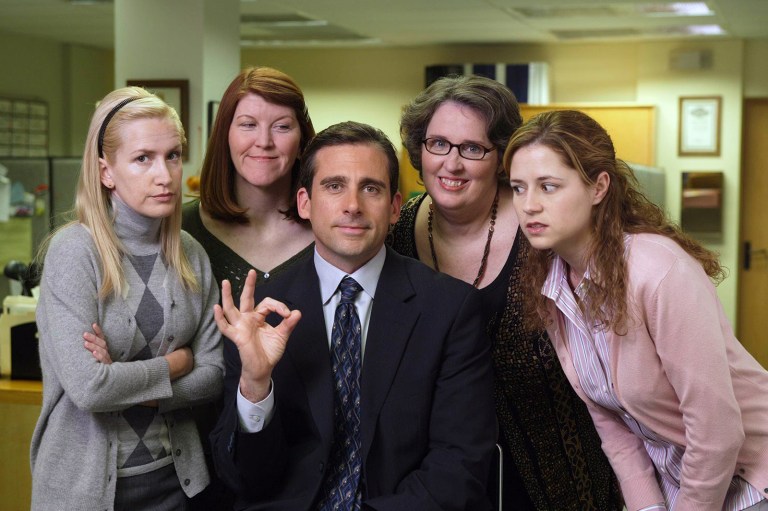
23 Quotes About How To Actually Make Your Twenties Count, From One Of The Top Psychologists In The Biz
To a great extent, our lives are decided by far-reaching twentysomething moments we may not realize are happening at all.
By ![]() Kim Quindlen
Kim Quindlen
Dr. Meg Jay is a clinical psychologist who specializes in helping twentysomethings. She rose to prominence back in 2013 with her popular TED talk called “Why 30 Is Not The New 20″ along with her book, “The Defining Decade: Why Your Twenties Matter – And How To Make The Most Of Them Now.” She does tend to focus often on things that not everyone is interested in, like getting married and having children, but her point is still relevant to twentysomethings from all walks of life: spend your twenties exploring and trying and working hard and doing things with purpose, instead of telling yourself that this decade of your life is just for goofing around and having fun. Here are 23 quotes from Jay about how to make the most of your twenties and avoid letting these years pass you by.

1. “Forget about having an identity crisis and get some identity capital. Do something that adds value to who you are. Do something that’s an investment in who you might want to be next.”
2. “Identity capital begets identity capital. So now is the time for that cross-country job, that internship, that startup you want to try. I’m not discounting twentysomething exploration here, but I am discounting exploration that’s ‘not supposed to count.’ Which, by the way, is not exploration – that’s procrastination.”
3. “Our twenties are the defining decade of adulthood. Eighty percent of life’s most defining moments take place by about age 35. Two-thirds of lifetime wage growth happens during the first ten years of a career. More than half of Americans are married or are dating or living with their future partner by age 30. Personality can change more during our twenties than at any other decade in life. Female fertility peaks at 28. The brain caps off its last major growth spurt. When it comes to adult development, 30 is not the new 20. Even if you do nothing, not making choices is a choice all the same. Don’t be defined by what you didn’t know or didn’t do.”
4. “Most twentysomethings can’t write the last sentence of their lives. But when pressed, they usually can identify things they want in their thirties or forties or sixties – or things they don’t want – and work backward from there. This is how you have your own multigenerational epic with a happy ending. This is how you live your life in real time.”
5. “Twentysomethings who don’t feel anxious and incompetent at work are usually overconfident or underemployed.”
6. “For the most part, ‘naturals’ are myths. People who are especially good at something may have some innate inclination, or some particular talent, but they have also spent about ten thousand hours practicing or doing that thing.”
7. “The one thing I have learned is that you can’t think your way through life. The only way to figure out what to do is to do something.”
8. “While most would agree with Socrates that ‘The unexamined life is not worth living,’ a lesser-known quote by Sheldon Kopp might be more important here: ‘The unlived life is not worth examining.'”
9. “In one way or another, almost every twentysomething client I have wonders, ‘Will things work out for me?’ The uncertainty behind that question is what makes twentysomething life so difficult, but it is also what makes twentysomething action so possible and so necessary. It’s unsettling to not know the future and, in a way, even more daunting to consider that what we are doing with our twentysomething lives might be determining it.”
10. “Uncertainty makes people anxious, and distraction is the twenty-first century opiate of the masses.”
11. “Shoulds can masquerade as high standards or lofty goals, but they are not the same. Goals direct us from the inside, but shoulds are paralyzing judgments from the outside. Goals feel like authentic dreams while shoulds feel like oppressive obligations. Shoulds set up a false dichotomy between either meeting an ideal or being a failure, between perfection or settling. The tyranny of the should even pits us against our own best interests.”
12. “[Society] is structured to distract people from the decisions that have a huge impact on happiness in order to focus attention on the decisions that have a marginal impact on happiness.”
13. “Being confused about choices is nothing more than hoping that maybe there is a way to get through life without taking charge.”
14. “Ian [a client of Jay’s] pretended that not knowing what to do was the hard part when, somewhere inside, I think he knew that making a choice about something is when the real uncertainty begins. The more terrifying uncertainty is wanting something and not knowing how to get it. It is working toward something even though there is no sure thing. When we make choices, we open ourselves up to hard work and failure and heartbreak, so sometimes it feels easier not to know, not to choose, and not to do.”
15. “We are led to believe the twentysomething years don’t matter, yet, with the glamorization of and near obsession with the twenties, there is little to remind us that anything else ever will. This causes too many men and women to squander the most transformative years of their adult lives, only to pay the price in decades to come. Our cultural attitude toward the twenties is something like good old American irrational exuberance.”
16. “Claiming your twenties is one of the simplest yet most transformative things you can do, for work, for love, for your happiness, maybe even for the world. This is not my opinion. These are the facts.”
17. “Researchers [have] found that most of the substantial and lasting events – those that led to career success, family fortune, personal bliss, or lack thereof – developed across days or weeks or months with little immediate dramatic effect. The importance of these experiences was not necessarily clear at the time but, in retrospect, the subjects recognized that these events had sharply defined their futures. To a great extent, our lives are decided by far-reaching twentysomething moments we may not realize are happening at all.”
18. “Our twenties are that critical period of adult development. But this isn’t what twentysomethings are hearing. Newspapers talk about the changing timetable of adulthood. Researchers call the twenties an ‘extended adolescence.’ Journalists coin silly nicknames for twentysomethings like ‘twixters’ and ‘kidults.’ As a culture we have trivialized what is actually the defining decade of adulthood.”
19. “Grabbing whoever you’re living with or sleeping with when everyone on Facebook starts walking down the aisle is not progress. The best time to work on your marriage is before you have one, and that means being as intentional with love as you are with work. Picking your family is about consciously choosing who and what you want, rather than just making it work or killing time with whoever happens to be choosing you.”
20. “Don’t panic about having kids. But do educate yourself about your body and your options.”
21. “At 21 or 25 or even 29, one good conversation, one good break, one good TED talk, can have an enormous effect across years and even generations to come. So here’s an idea worth spreading… 30 is not the new 20, so claim your adulthood, get some identity capital, use your weak ties, pick your family.”
22. “Knowing what to overlook is one way older adults are typically wiser than young adults. With age comes what is known as ‘positivity effect.’ We become more interested in positive information, and our brains react less strongly to what negative information we do encounter.”
23. “Don’t be defined by what you didn’t know or didn’t do. You’re deciding your life right now.” ![]()
You can watch Jay’s TED talk here:











